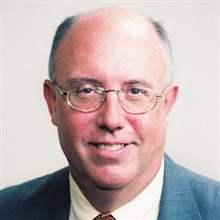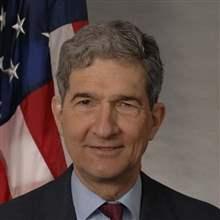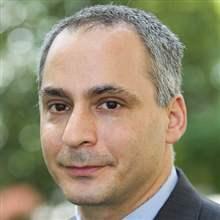Brookings experts reacted to President Barack Obama’s speech today on National Security Agency intelligence reforms. Here are some quotes from the panelists. Full event audio and video are now available, and video clips will be available soon.

Bruce Riedel
Senior Fellow and Director,
Intelligence Project
“The presidential policy directive that accompanies the speech, PPD 28, is in my judgment unprecedented.”
“Of course on the biggest issue we’ve all heard, Section 215 metadata we largely have a punt.”
That the president found “no evidence of abuse of authority by the NSA” is “a pretty important judgment to put out there.”
“How did he portray the National Security Agency in particular and the intelligence community in general? … On this I think the president was clear and unequivocal. He identified the National Security Agency as the spiritual son of the Sons of Liberty and Paul Revere, in 1775. I can’t imagine a better description in the eyes of Fort Meade than the one the president gave them. He called them the World War Two code breakers of today.”
“Over the course of the last several months we’ve heard a lot of attempts to defend in terms of foiling various terrorist operations. The president was here I think a little bit on more shaky ground. He said multiple attacks have been thwarted and then he gave us really no examples of that.”
On Edward Snowden: “the president made his views on Edward Snowden perfectly clear as he has before in the past. Edward Snowden is not a whistleblower, in the president’s eyes. He’s a man who violated his secrecy oaths. He’s a man who leaked information in a sensationalistic and often incorrect way. And most importantly, Edward Snowden has put out information … which the president said would harm our national interests and our capacity to collect intelligence in the future for years if not decades to come.”
 Cameron Kerry
Cameron Kerry
Andrew H. Tisch Distinguished Visiting Fellow; Visiting scholar, The MIT Media Lab
On the president’s remarks regarding the speech and the international community:
There I think the president accomplished a great deal, and I think went further than expected in declaring that we are going to extend protections to non-U.S. persons, to non-U.S. nationals regardless of where they are. … And articulated a set of principles that will apply to signals intelligence gathering involving non-U.S. citizens. Many of those principles that have already been applied by the intelligence community. But the significance of having them in a presidential policy directive … goes far beyond that and I think will resonate with the international community. It is a statement by the president, at the highest levels of policy, and it is binding and it is public. So those are all important things.
Visiting Fellow, Foreign Policy, Center for 21st Century Security and Intelligence
Wallace focused in his remarks on three areas that the president did not cover in his speech. First, organizational questions about the NSA and its place within the national security architecture.
Second, the issue of cryptography—”whether NSA prevailed upon NIST standards-setters to weaken cryptography to make it easier to spy on people” and the concern of many in the cyber community that this was a “breach of trust.”
And third, Internet governance. The issue here, Wallace explained, is the diverging approaches to global Internet governance: current mechanisms or a more governmental approach. “And I think the concern was with Snowden,” he said, that “many of the governments sitting between these two camps were beginning to distance themselves from the United States. There is a lot more to do with this and I wonder simply setting up a position at the State Department is sufficient to take that forward.”
 Benjamin Wittes
Benjamin Wittes
Senior Fellow, Governance Studies, Editor in Chief,
Lawfare
The speech, said Wittes, “was sort of a surprisingly strong endorsement of the centrality of the intelligence community broadly and the NSA in particular.”
Wittes turned to three substantive areas: 215 authorities, overseas content collection (702 program), and the “total victory” of the FBI and Justice Department on national security.
On 215, this is of course the molten core of the political debate. It is actually not the molten core of the issue that faces … either the intelligence community or the civil liberties community … This is a comprehensive collection program but it’s … aimed at a very narrow category of data, which is telephony metadata. And so it’s capacity to either do great good … or frankly to do terrible damage in the civil liberties arena is actually much less than either collection under 702 … or collection under Executive Order 1223. It’s just not that broad-based a program in terms of what gets collected, and analyzed and how.
On overseas data collection, Wittes said that “702 strikes me as even a bigger win for the agency. … 702, unlike 215, is a massively important program. It is a bread and butter collection program devoted to overseas intelligence targeted at non-U.S. persons.”
The president for the first time, and it’s a very important statement at a kind of spiritual level, that we acknowledged that non-U.S. persons have privacy rights in the context of our overseas collection. It is very hard to overstate the sort of spiritual importance of that statement. The practical importance of that statement may be dramatically less than the spiritual importance. And the reason is that the intelligence community actually doesn’t collect and disseminate willy-nilly stuff about overseas targets that has no foreign intelligence value. They don’t do it not because it’s illegal but because it’s a total waste of their time.
Finally, Wittes said that the FBI won in the “real squabble” over its routine issuance of national security letters to telecomm providers to turn over basic information. It was “one of the big surprises of the Review Group report.”
Wittes concluded the program with a look ahead to the expiration in 2015 of the 215 provision of the USA PATRIOT Act.
The other big factor is the fact that the PATRIOT Act authorities, including Section 215, do sunset in a little less than 18 months. And so in the short term if Congress doesn’t do something, what happens is the president maintains all the authorities he has, including vis-a-vis 215, subject to whatever additional constraints he puts on himself … But in the longer term … that default switches, and if Congress doesn’t do something, the 215 authority actually goes away in, I believe, May of 2015.
And so one of the questions … is do the politics settle enough that you could have a congressional enactment that says, this is the portion of this program that we will endorse beyond May of 2015? And does the Review Group recommendation as articulated by the president today—embraced sort of by the president today—provide a formula for that longer term stability or not? The picture strikes me as very different if you think that that recommendation and the president’s discussion of it today provides a basis for settlement of that issue than if you believe it doesn’t.
The Brookings Institution is committed to quality, independence, and impact.
We are supported by a diverse array of funders. In line with our values and policies, each Brookings publication represents the sole views of its author(s).

 Ian Wallace
Ian Wallace


Commentary
What Brookings Experts Said about President Obama’s NSA Speech Today
January 17, 2014